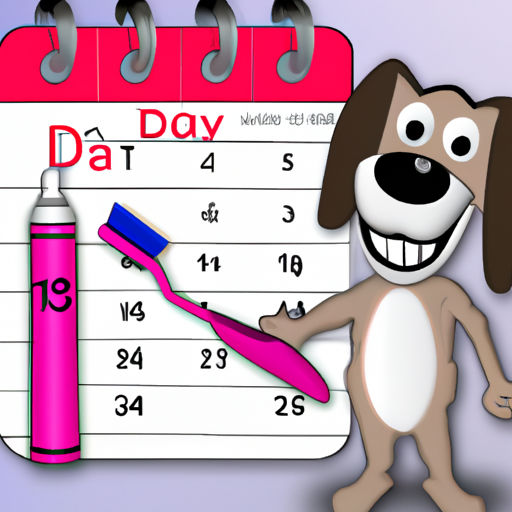“`markdown
How Often to Brush Your Dog’s Teeth
Why Brushing Your Dog’s Teeth is Important
Just like us, our canine companions can develop dental issues. You wouldn’t skip brushing your teeth daily, so why should your furry friend? Regular brushing can help keep your dog’s teeth healthy and prevent dental diseases. As a caregiver, you play a crucial role in your pet’s oral hygiene.
- Prevents plaque and tartar buildup: Just like humans, dogs can develop plaque and tartar on their teeth, which could lead to gum disease.
- Fights off bad breath: Regular brushing can help keep your dog’s breath fresh.
- Prevents painful dental issues: Brushing can prevent dental issues that could cause your dog discomfort or pain.
How Often to Brush Your Dog’s Teeth
Ideally, you should be brushing your dog’s teeth daily. However, if that’s not feasible, aim for at least three times a week. Regularity is key here. The more often you brush, the more effective you’ll be at preventing dental issues.
- Daily: Best for optimal dental health.
- Three times a week: A minimum for maintaining good oral hygiene.
Techniques for Brushing Your Dog’s Teeth
Brushing your dog’s teeth might seem like a daunting task, but with patience and the right technique, it can be a breeze.
- Choose the right toothbrush and toothpaste: Use a toothbrush designed for dogs and toothpaste that is safe for them to swallow.
- Start gradually: Let your dog get used to the idea of having their teeth brushed.
- Use gentle circular motions: Brush the outer surfaces of the teeth and gums.
Common Problems and Solutions
| Problem | Solution |
|---|---|
| Dog resists brushing | Start slowly and give rewards |
| Dog has sensitive gums | Use a softer brush |
| Can’t reach back teeth | Try a longer toothbrush |
Frequently Asked Questions
Q: Can I use human toothpaste for my dog?
A: No, human toothpaste can be harmful to dogs. Always use a dog-safe toothpaste.
Q: What if my dog won’t let me brush their teeth?
A: Start slowly and make the experience as positive as possible. If they continue to resist, consult with a professional.
Q: How can I tell if my dog has dental issues?
A: Bad breath, difficulty eating, and changes in behavior can all be signs of dental issues. If you notice any of these, consult your vet.
Remember, your role as a caregiver extends to your pet’s oral hygiene. By taking the time to brush your dog’s teeth regularly, you can help ensure a longer, healthier life for your furry friend.
“`



